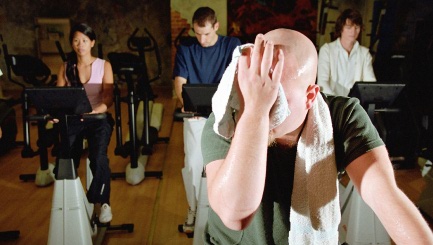New To Exercise? Top Tips For Avoiding A Burnout
You may feel quite overwhelmed by exercise if you’re new to it – it may even be painful if you’re not careful! Warming your body up before you begin is important to avoid injury and help you to enjoy your workouts more. Warming up for as little as five to ten minutes can make all the difference, preparing your respiratory, nervous and cardiovascular systems for the demands of exercise by increasing your circulation to the muscle tissues and heart. It also helps the connective tissues take on the stress of exercise, so you will be less likely to suffer an injury. Think of this area of the body as hard plastic, which needs warming before it is flexible.
A proper warm-up and cool-down can also help to reduce the severity of soreness following your workout, as the blood flow to the muscles and joints can help to eliminate the waste products which can build up and lead to stiffness. You should warm up with a low impact exercise at a comfortable pace that you’re happy with, and which is slower than your actual exercise regime so that you can gradually increase the intensity. Elliptical machines, rowing and walking on the treadmill are all great warm-up exercises and aren’t likely to put stress on your body and joints. But one of the other reasons for soreness is trying to do too much, too soon. You need to give your body chance to adjust and going in too heavy from the start only increases your chance of injury and heightened stress to the body. If you’re starting resistance training for the first time, you should pick one to two exercises for each area of the body – the upper, lower and core areas.
If you’re new to aerobic training, you should start with something which raises your heart rate a little but that won’t render you completely out of breath. Do this for the first ten minutes of your workouts the first few times you exercise, so that you can slowly progress through the duration of the workout. If you’ve increased to the point where you can do 30 minutes of exercise at that pace, you can then start building the intensity a little at a time. You could begin, for example, with two to three days of 30 minutes at your starting pace, then a ten minute session on day at a higher intensity. Another element of your workout to consider if your energy level, as beginners often don’t have the energy to maintain a long exercise session and this is something to bear in mind when you’re undertaking a massive exercise programme. It can leave you feeling fatigued and drained, which is neither good for your health or your training goals.
You don’t have to get discouraged if you can’t keep up with other people – work to your own pace and you’ll soon be matching them on speed and endurance. it’s just something that is worth taking the time over. Overexertion will lead to soreness and stiffness, as well as putting your body under unnecessary strain. If you do happen to go too far in the first instance, you should take time to rest and recuperate – get plenty of rest, eat healthy food and drink plenty of fluids. Stretching will help to keep your muscles supple, but don’t go back to the gym and do another heavy workout – it will only make it worse.

Comments are closed.